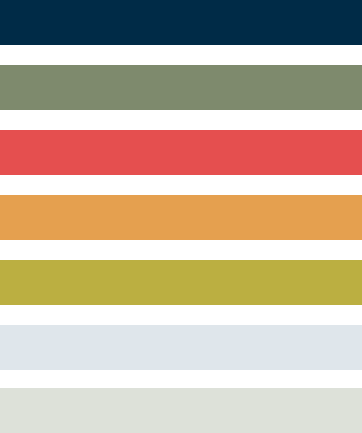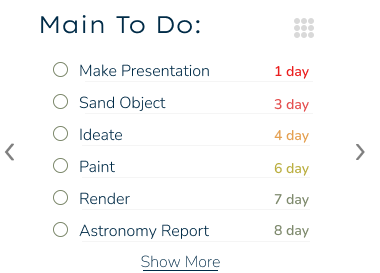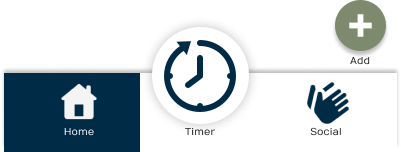Horizon

"It can take up to 25 mins to regain focus after being distracted"
- Human Computer Interaction Institute at Carnegie Mellon University reported by the Observer
01.
Research
02.
Low-Fidelity and Task Flow
03.
Mid-Fidelity and User Testing
04.
Brand Identity
05.
Final Screens
Design Process
Research
Literature Review
Phycology Behind Focus
The psychology of focus revolves around several key elements that foster productivity and mental well-being. First, practicing focus and identifying distractions is essential, as it helps individuals create an environment where they can excel. Additionally, cultivating “winning” conditions, such as maintaining a positive and optimistic mindset, plays a critical role in reducing stress and promoting calmness, which can enhance focus. Actively engaging socially can further elevate motivation and counter distractions, providing valuable support in achieving goals. Moreover, research shows that working in small, focused intervals with breaks in between is the most effective method for sustaining long-term productivity. It’s important to recognize that everyone’s “sweet spot” for work-to-break time is different, but studies suggest that on average, the ideal work span is between 10 to 52 minutes. Understanding and embracing these principles can help individuals maximize their potential and productivity.
Practice
Practicing focus and productivity concentrate a long standing habit
Small Chunks
Breaking down work periods into short sessions with small breaks in between can improve results
Game Conditions
Viewing tasks as a game to be won can actually increase the overall efficiency of productivity
Positive
Staying positive and optimistic can reduce stress and depression and improve focus
Problem
Many productivity apps lack personalization, making it hard for users to adapt task management to their individual needs, focus patterns, and motivation levels.
Solution
A customizable to-do list app that tailors recommendations based on due dates, work session timing, and focus levels by monitoring user data. It also allows users to connect with friends for added encouragement and friendly competition, boosting motivation.
For the Survey 26 people filled out a series of sixteen question from a range of multiple choice to short answer. They identified preferred methods for task management and productivity along with address what they use or liked along with what they struggled with or didn't like.
What daily routines or activities help you feel most productive?
The top choice by far was prioritizing task at 84%. With the next closest being taking regular breaks at 40% and setting specific goals at 32%.

88%
Deadlines
What types of distractions prevent you from being productive?
Procrastination and being Overwhelmed were the top chooises with both reaching 72%. The next closest one was Social Media at 48%.

84%
Prioritizing Task

72%
Procrastination & Overwhelmed
What currently motivates you to stay productive?
Deadlines was the overwhelming answer with a sense of accomplishment following at a close second with 72%.
Survey
BenchMarking
Low-fidelity and Task Flow
Low-Fidelity

Opal is good with managing and recording screen data and percentages giving up to date and accurate feedback to the user.

The accomplishments and achievements page on Duolingo is strong for its visual minimalism but strong visuals.

Duolingo does a good job at creating a low rate competition and including friends for added support as well.

LinkedIn is one of many now that does these cheesy responses to posts but it creates a a deeper emotional connection.
Task Flow

Horizon task flow is showing the optimal paths in the onboarding for an first time user. Then goes into showing a broad overview of the function of the app.
Mid -Fidelity and User testing
Mid-Fidelity
Add paragraph text. Click “Edit Text” to update the font, size and more. To change and reuse text themes, go to Site Styles.
User Testing
Brand Idenity
Color
Typography







Write a Title Here.
For this iteration I wanted to the home screen and different effective layouts. In the end the second iteration was the best one with a couple of additions.



Ui Elements
Final Screens


002B47
7E8A6D
E54F4F
E5A04F
BBAF41
002B47 30%
7E8A6D 30%

Home Screen

Feedback


Sprint

Timer




The low fidelity screens explored which different screens would present a long with different layouts. The main theme was minimalism due to task mangers already having so much stress related to them.
For benchmarking the overall goal was to look at different almost non related apps to see where their strong suits came in relation to the literature review above.













